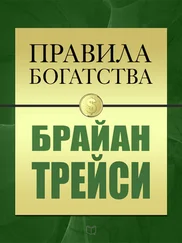I remember saying a silent I’m sorry to the creature. I was its executioner. Dead hen walking.
I hooked my left hand around one of the chicken’s spurs, the sharp underdeveloped opposing digit that comes out of the back of the ankle. It dug into the flesh of my hand. I wasn’t going to let that slow me down. I quickly gathered the wings and legs in one hand. I yanked the hatchet out of the stump with my free hand and plopped the chicken’s head in its place. I was focused. No way was I going to wince and shut my eyes and miss my target as Kim had on his first attempt. No way.
The chicken struggled to free itself from my grasp. Not a chance. I raised the hatchet well above my head and brought it down with a ferocious swing. The head plopped lifelessly to the ground. Clean. Dead. I’d done it. And I’d buried the blade deep into the chopping block.
No time to revel in the glory. Once the head was off, the animal’s central nervous system sent out emergency signals, and the carcass convulsed. I held steady, watching the dark red stream of blood drain into the nearly full blood bucket. But the violence of the shaking surprised me, and soon one of the wings was loose from my grasp. As I struggled to get the wing under control, the other one worked free. Blood was still flowing. I wasn’t about to let it drip outside of the bucket, and catch a furious “What da hell!” from my grandfather. I pressed the bird downward. Not a drop of blood hit the ground.
But its wings flapped mightily, plunging deep into the bucket, sending streams of blood upward. Suddenly blood was in my nostrils, ears, and mouth. Oh God. I wore it. I tasted it. I drank it. But I didn’t let go, by God. I should have, but I didn’t.
I had blood in my eyes, so I couldn’t see. I tossed the carcass in the direction of the bucket where its brethren lay. I missed. The moment it hit the ground, the bloody, headless creature rose to its feet and ran around the yard, ricocheting against whatever obstacle it encountered.
I tried to wipe off my bloody face, but there was blood on my hands. Kim later told me he stood in awe, switching his gaze from me to the chicken, the chicken to me. One bloody mess to another.
The chicken finally collapsed, and I hung my head while Kim rinsed me off with a garden hose. No way Grandpa was going to let me use the only indoor bathroom to clean up. That was reserved for Grandma. Kim and I were relegated to the outhouse. (Grandpa even tried to teach us how to separate our waste for fertilizer. Good times.)
Later that night I had to relive the “blood boy” experience as Grandpa, now finding the event very amusing, told the tale—with some embellishment—to Grandma. She was less sympathetic than I had hoped. I remember her laughing heartily. Everyone laughed. I guess it must have been funny.
After a year of collecting eggs and killing chickens, my brother and I were whooshed out of the country and reunited with our mother and sister at 7308 Owensmouth Avenue in Canoga Park, a house in need of either a retrofit or a wrecking ball. On the plus side, it was big. To offset the cost of leasing the whole place, my mother rented two small cottages in the backyard and two rooms inside the house to strangers. The renters were middle-aged single men on the low ebb of their luck. They all used one toilet in the back of the house, but had to find other means to shower. We never knew and never asked.
However, one man insisted as part of his rental agreement to be allowed to take a bath once a day in the only bathroom in our house. Every day at 3:00 p.m. we were required to unlock the access door to the bathroom from the back hallway to allow “Mr. Clean” to come in and bathe, shave, and do whatever he chose to do in there for an hour. This meant we had to make sure we didn’t need to pee during that hour. If we did, we’d have to walk two doors down to the library to use their facilities.
The boarders plus my mother’s full-time employment at the photo counter of JC Penney covered most but not all of the monthly nut. My brother worked at our next-door neighbor’s western apparel store. I took on a number of odd jobs. We both chipped in.
In junior high, I had a job—a con job, really—distributing a throwaway rag, the Canoga Park Chronicle. First, I was supposed to stick people with the paper. Then I was instructed to knock on their doors to collect the fee. Shock of all shocks, not many people cared to pay $3.10 a month for a paper they neither ordered nor wanted. The few nice folks who did pony up only felt sorry for me.
I canvassed every house in the square mile of my territory. I lost track of how many times I heard: “Stop delivering that damn thing. It pisses me off every time I have to pick it up off my driveway and throw it in the garbage.”
“Okay,” I’d say, more desperation in my voice than brightness, “let’s just have you pay the last month as a cancellation fee.”
“I never ordered it, jackass!”
Trying so hard to give people something they clearly didn’t want was eroding my confidence and spirit. Every day I wanted to quit. And the amount of time it took to complete my deliveries was cutting into my master plan to achieve a C average at Columbus Junior High.
I decided that I’d only deliver the paper to the nice people who sympathized with my plight. The rest of the papers I jettisoned into a Dumpster near my house. I’d stroll casually up to the receptacle, look around to make sure there were no witnesses, open the lid, and quickly throw all my papers inside. Then I’d walk away nonchalantly.
No one was any the wiser… until they were. Apparently, businesses that paid for the Dumpster didn’t appreciate my disposal habits. They called the newspaper, and I suppose it wasn’t too hard for my bosses to find the culprit in the case of the missing papers. My boss called my house and excoriated me. I remember he used the word stealing. Several times. And then he fired me.
I stood in the kitchen with the receiver in my hand for a while after he hung up. I was racked with shame, and more than that—surprise. I knew my actions were underhanded, but I don’t think I fully understood that they constituted thievery.
I was the kid who always looked for the shortcut, the scammer, the trickster. I was the mischief maker. If there was a way to shirk responsibility, I’d find it. Somewhere along the way, my family nicknamed me Sneaky Pete.
And especially during my teenage years, I lived up to the name. In woodshop class, the teacher asked me what I would like to make for my final. I was feeling estranged from my mother, so I decided to try to bridge the gap by building her a chessboard tabletop, one of a half dozen approved projects. Though I was devoid of much talent in the woodworking department, the piece came out pretty well. I bought professionally lathed legs, attached them to the top, and voilà! I presented the finished product to her. Hey, Mom. I made something for you.
The look on her face. She was elated. I hadn’t seen her so happy since my single-digit years, before my father left. I hadn’t been receiving a lot of praise or nurturing, so genuine appreciation and marvel at what she perceived to be my skill and craftsmanship was pure joy. Joy all around.
One day I walked into the living room and she was proudly showing off the table to a friend, running her hand along the legs like a game show hostess displaying the grand prize. Bryan made these, she exclaimed. So beautifully designed. My son , she said.
I was about to interject with a clarification that actually I’d only made the chessboard, but the friend was impressed, which made my mom even more jubilant. I was caught somewhere between smiling and throwing up. I wanted to say: I didn’t make those legs! Look at them. They’re perfect! They could only have come from a professional mill. How could she not know that? I told her I made her a chess table. I assumed that she would understand that meant I made the table’s top . But I couldn’t bear to correct her. She wasn’t happy very often—for the rest of her life, really—and I didn’t want this little run to end. So, from that moment on, I just nodded when anyone asked if I made the table. She kept that thing for years and every time we had a guest, she’d wax on about my craftsmanship. I’d just nod and smile, starting to get comfortable with my lie.
Читать дальше












